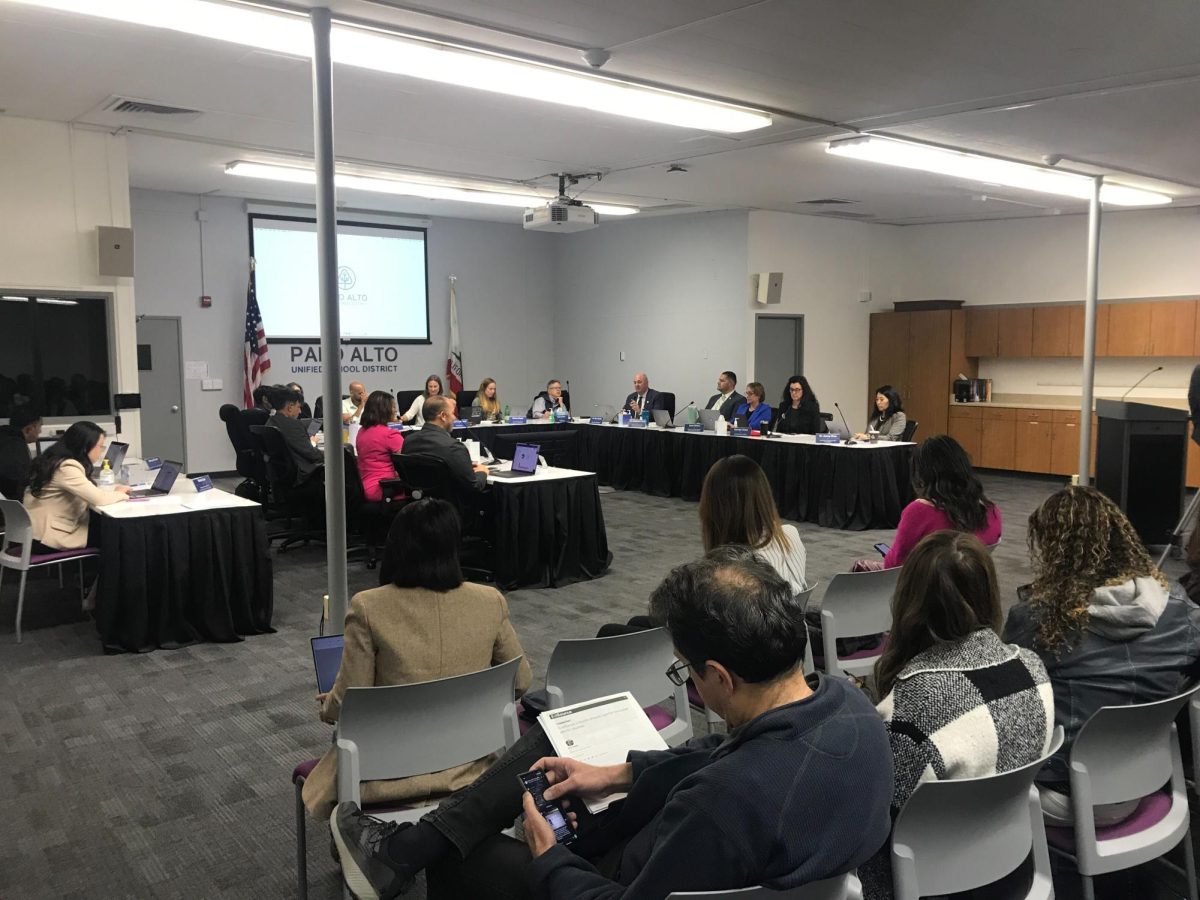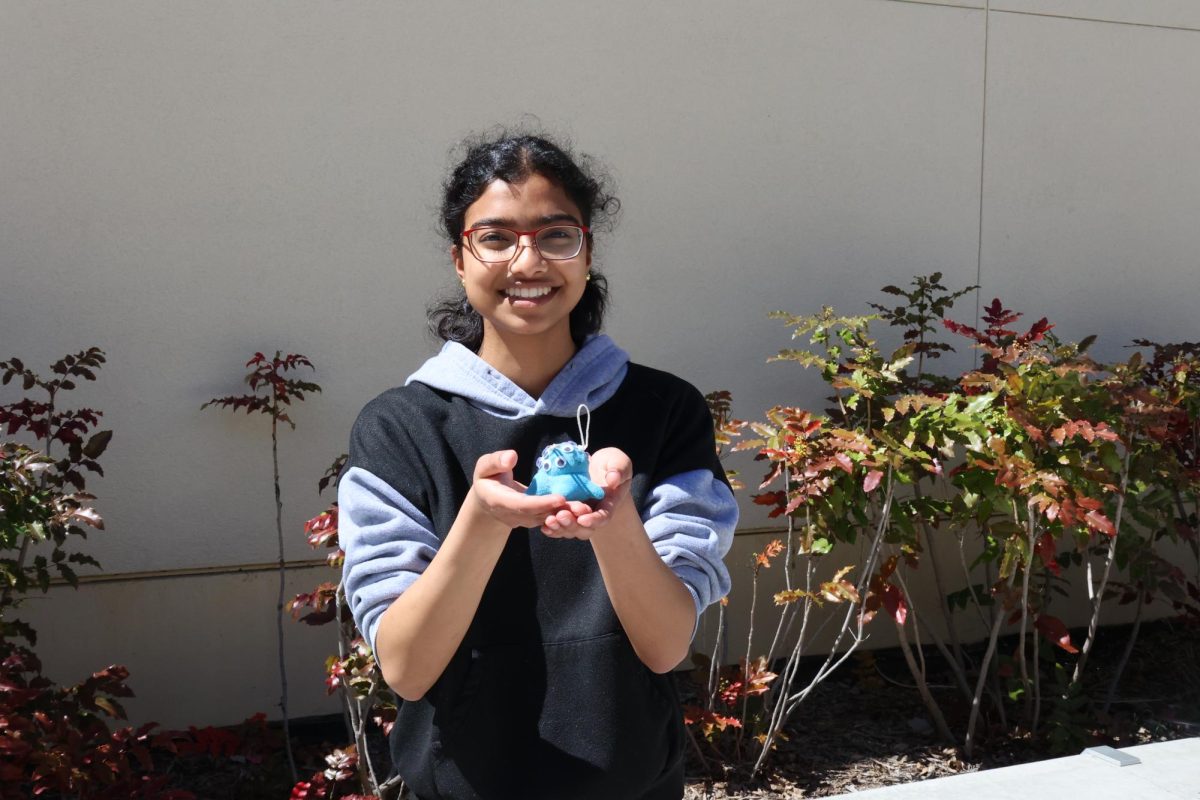At the March 26 school-board meeting, the Board received updates from the Ethnic Studies Committee and the district’s three Technology/AI committees. After both presentations, community members voiced their opinions on the committees’ reports.
The Ethnic Studies Committee includes Assistant Superintendent of Secondary Education Dr. Gulliermo Lopez, Gunn Social Studies Instructional Lead Jeff Patrick, Paly Social Studies Instructional Lead Mary Sano and other Gunn and Paly teachers. The group was founded during the 2022-23 school year in response to A.B. 101, which mandates that all California high schools make ethnic studies a graduation requirement for the Class of 2030 — current sixth graders — or earlier.

During the meeting, Lopez, Patrick and Sano presented on the course’s new curriculum. Ethnic studies at PAUSD will be segmented into five units, starting with unit zero, Why Ethnic Studies, and continuing with Identity; Power, Privilege and Systems of Opression; Resilience and Resistance; and Action and Civic Engagement, a capstone project. Units one through three will include case studies centered around different primary sources from four ethnic groups: African Americans, Chicanx and Latinx Americans, Native Americans, and Asian Americans and Pacific Islanders.
Next year, Gunn and Paly will each pilot one ethnic studies class of 20 ninth graders, who will be selected through lottery at each site. According to Sano, one of the main goals of these classes is to garner feedback from students and teachers.
In response to the presentation, Paly Student School Board Representative junior Karthi Gottipati said that students should play a bigger role in the course design process, and warned that if unable to give input, students might feel less interested in to the finished course.
“It is entirely pointless to have an ethnic studies course that is designed for adults and by adults if students don’t know and don’t care what’s being taught,” he said during the meeting.
Gunn Student School Board Representative senior Chris Lee (who is also managing editor for The Oracle) also emphasized the importance of considering the intended recipients of the new course.
“The (students) who I talked to felt like the conversation surrounding ethnic studies — especially at these Board meetings — was getting further and further away from them and their priorities,” he said during the meeting. “It’s important for parents and other community members to understand that the course is ultimately for students.”
After the ethnic studies presentation, the AI ad hoc committees from Gunn, Paly and PAUSD — composed of mostly high school students, staff and technology experts at the district level — shared generative AI goals for the district. These goals included furthering equity and inclusion by using generative AI to summarize texts for English Language Learners and neurodiverse students, as well as developing alternate lesson plans that prevent — or render ineffective — the use of AI by covering topics that software such as ChatGPT hasn’t learned about.
Gunn committee member sophomore Sujay Dorai presented his hopes for AI’s future in the district.
“I think it’ll be a positive change because it’s really a really powerful technology,” he said. “I hope that the district can use this to get rid of busy work.”
Board member Shounak Dharap was appreciative of the AI committee’s work and saw it as an important focus point for the district.
“(The AI committee) is the most important thing the district is doing,” Dharap said during the meeting. “It touches every single other thing we’re doing. I’m really interested in what we’re doing and really supportive of everything.”

























